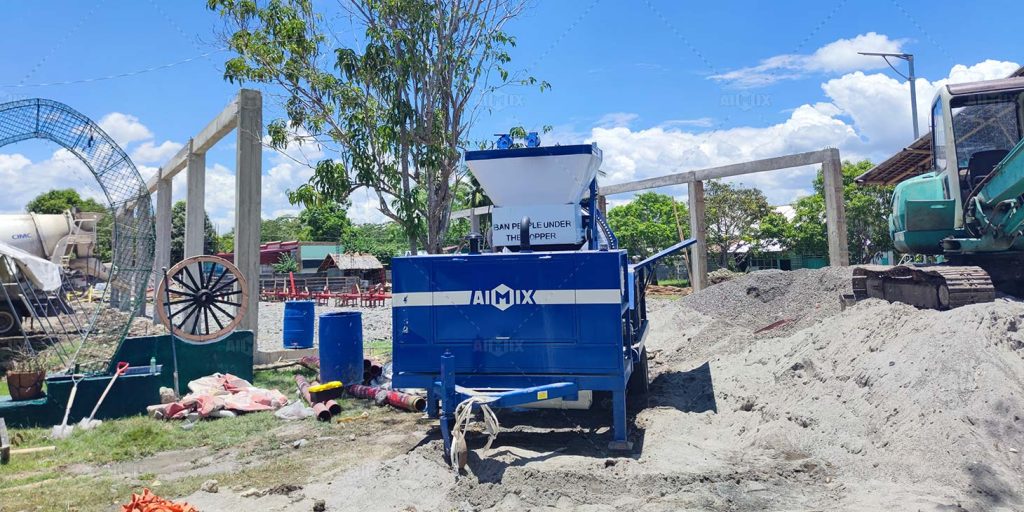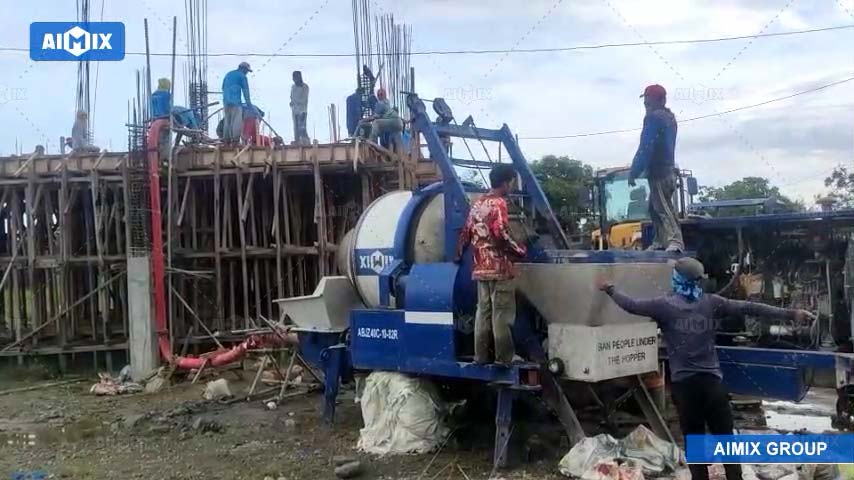Concrete pumping technology has revolutionized the construction industry, providing efficiency and precision in the transportation and placement of concrete. Among the various types of concrete pumps, hydraulic and mechanical machines stand out due to their unique operating mechanisms and applications.
Understanding the differences between these two types of pumps is crucial for selecting the right equipment for specific construction needs. This article delves into the intricacies of hydraulic and mechanical concrete pump machines, highlighting their mechanisms, advantages, and suitable applications.
Operating Mechanisms
Hydraulic Concrete Pump Machines
Hydraulic concrete pumps operate through the power of hydraulic pressure. This sophisticated system utilizes hydraulic cylinders and pistons to generate force, pushing the concrete through the pipeline with remarkable consistency. The hydraulic fluid, typically oil, is pressurized and directed into the cylinders, creating a smooth and powerful pumping action. This method ensures a steady flow of concrete, even under high-pressure conditions, making hydraulic pumps highly efficient for large-scale projects.
The intricacy of the hydraulic system allows for greater control over the pumping process. The concrete mixer with pump operator can easily adjust the pressure and flow rate, catering to the specific requirements of the construction site. Moreover, the hydraulic system’s ability to handle viscous and high-strength concrete mixes makes it an ideal choice for demanding projects.

Mechanical Concrete Pump Machines
Mechanical concrete pumps, in contrast, rely on a more straightforward mechanical linkage system. These pumps use rotating parts and gears to generate the pumping action. The mechanical drive typically consists of a series of levers, crankshafts, and rotating cylinders that work in unison to push the concrete through the pipeline. This mechanical action is driven by an engine, which can be either electric or diesel-powered.
While mechanical pumps may lack the finesse and control of hydraulic systems, they compensate with simplicity and robustness. The mechanical components are generally easier to maintain and repair, which can be advantageous in remote or resource-limited construction sites. However, mechanical pumps may struggle with high-viscosity concrete mixes, limiting their applicability in certain projects.
Advantages and Disadvantages
Advantages of Hydraulic Concrete Pumps
Hydraulic concrete pumps offer several notable advantages. The precision and control provided by hydraulic systems are unparalleled, allowing operators to manage the flow rate and pressure with exceptional accuracy. This makes hydraulic concrete pumps for sale suitable for a wide range of applications, from high-rise buildings to extensive infrastructure projects.
Additionally, hydraulic pumps are capable of handling high-viscosity and high-strength concrete mixes, which are often required in specialized construction scenarios. The smooth and continuous pumping action reduces the likelihood of blockages and interruptions, ensuring a seamless workflow.
Another significant advantage is the durability of hydraulic systems. The robust construction of hydraulic pumps ensures longevity and reliable performance, even under demanding conditions. This durability translates to lower maintenance costs and reduced downtime, further enhancing the overall efficiency of construction operations.

Disadvantages of Hydraulic Concrete Pumps
Despite their numerous benefits, hydraulic concrete pumps also have some drawbacks. The complexity of the hydraulic system can lead to higher initial costs and increased maintenance requirements. Operators need specialized training to handle hydraulic pumps effectively, adding to the operational expenses.
Moreover, hydraulic pumps are typically heavier and bulkier than their mechanical counterparts, which can pose challenges in terms of transportation and maneuverability on construction sites. The need for hydraulic fluid and the potential for leaks also introduce environmental considerations that must be managed carefully.
Advantages of Mechanical Concrete Pumps
Mechanical concrete pumps are favored for their simplicity and reliability. The straightforward mechanical design makes the concrete portable pump easy to operate and maintain, which is particularly advantageous in remote or less-developed areas where technical support may be limited.
The lower initial cost of mechanical pumps makes them an attractive option for smaller projects or construction firms with budget constraints. The mechanical components are generally robust and can withstand harsh working conditions, ensuring consistent performance.
Another advantage is the adaptability of mechanical pumps to various power sources. Whether powered by electricity or diesel engines, mechanical pumps offer flexibility in different construction environments.
Disadvantages of Mechanical Concrete Pumps
However, mechanical concrete pumps also have limitations. The lack of precision and control compared to hydraulic systems can affect the quality of the concrete placement, especially in complex or large-scale projects. Mechanical pumps may struggle with high-viscosity concrete mixes, leading to blockages and interruptions.
The mechanical components, while robust, are subject to wear and tear, necessitating regular maintenance and potential downtime. Additionally, mechanical pumps may not provide the same level of efficiency and productivity as hydraulic systems, limiting their use in high-demand construction scenarios.
Applications and Suitability
Best Uses for Hydraulic Concrete Pumps
Hydraulic concrete pumps are best suited for large-scale and high-demand construction projects. Their ability to handle high-viscosity and high-strength concrete makes them ideal for infrastructure projects such as bridges, dams, and high-rise buildings. The precise control and continuous pumping action ensure that hydraulic pumps can meet the rigorous demands of these complex projects. You can use AIMIX hydraulic concrete pump for your projects: https://concretemixerwithpump.com/cement-mixer-pump/.
Best Uses for Mechanical Concrete Pumps
Mechanical concrete pumps, on the other hand, are well-suited for smaller to medium-sized projects. Their simplicity and ease of maintenance make them a practical choice for residential construction, smaller commercial projects, and rural construction sites. Mechanical pumps are also an excellent option for projects with budget constraints or limited access to technical support.
In conclusion, both hydraulic and mechanical concrete pump machines have their unique advantages and are suited for different types of construction projects. Understanding the specific needs of your project will help in selecting the most appropriate pump, ensuring efficiency, reliability, and quality in concrete placement.